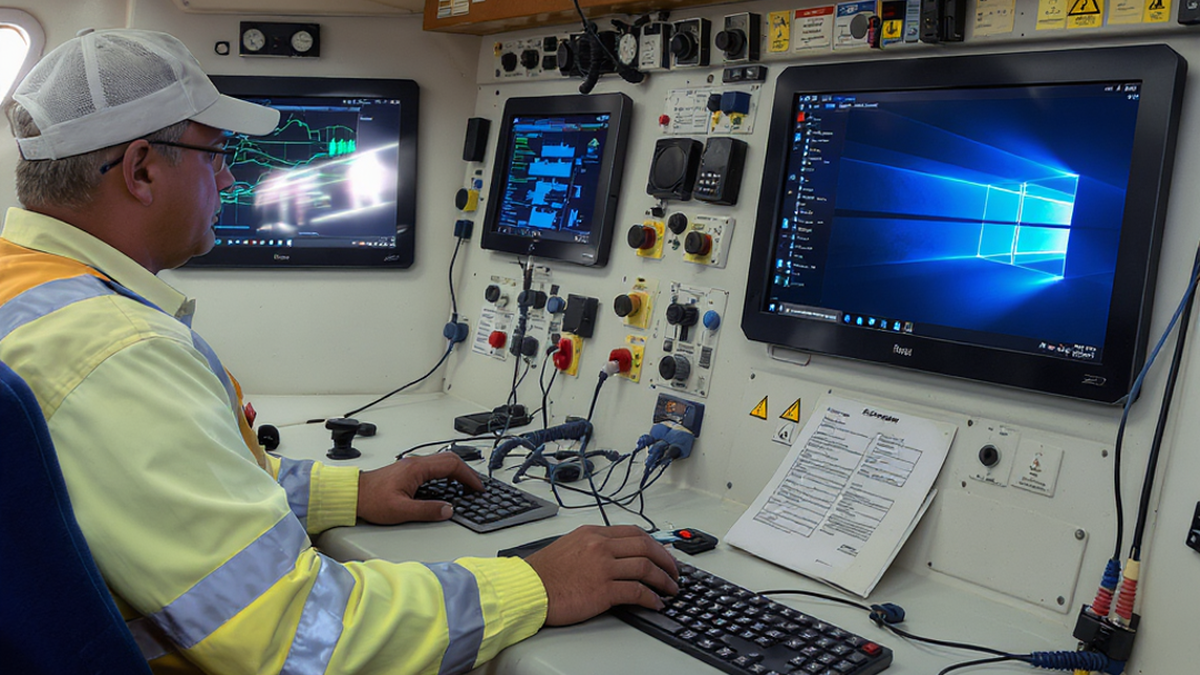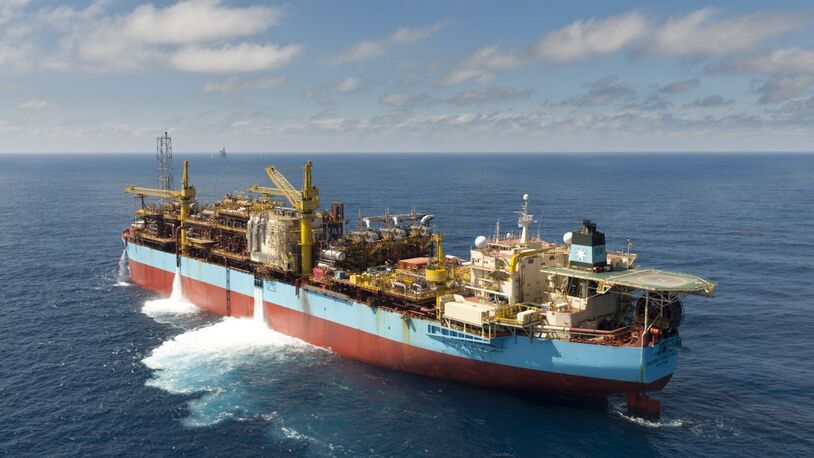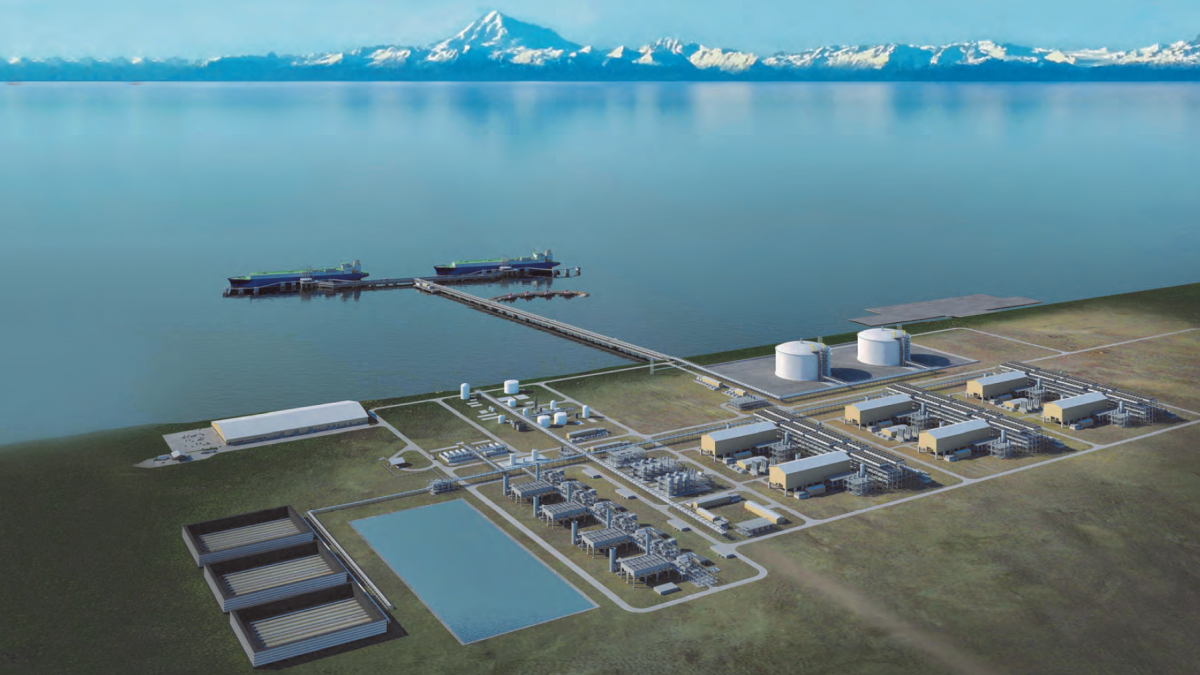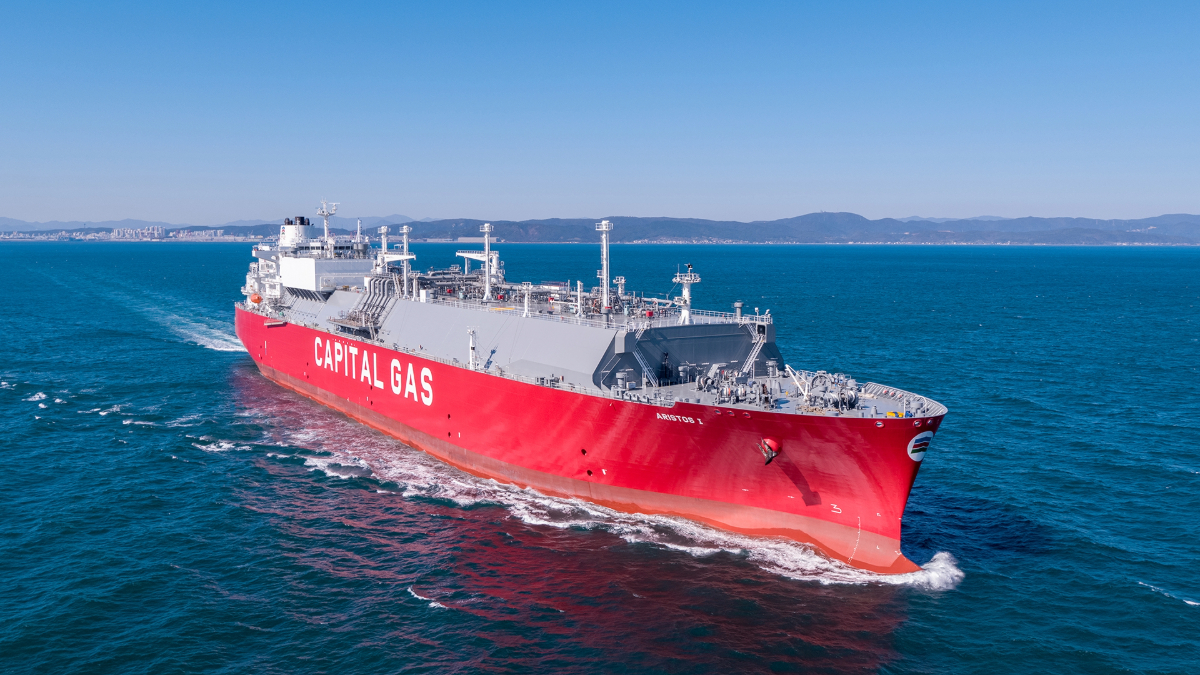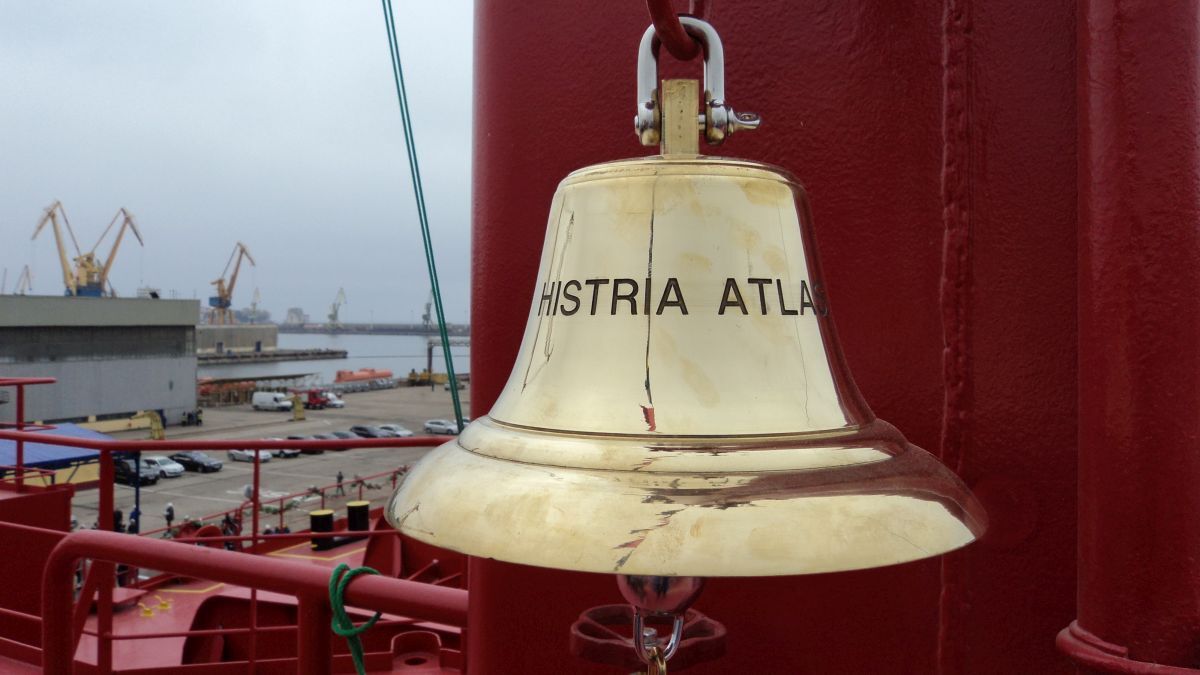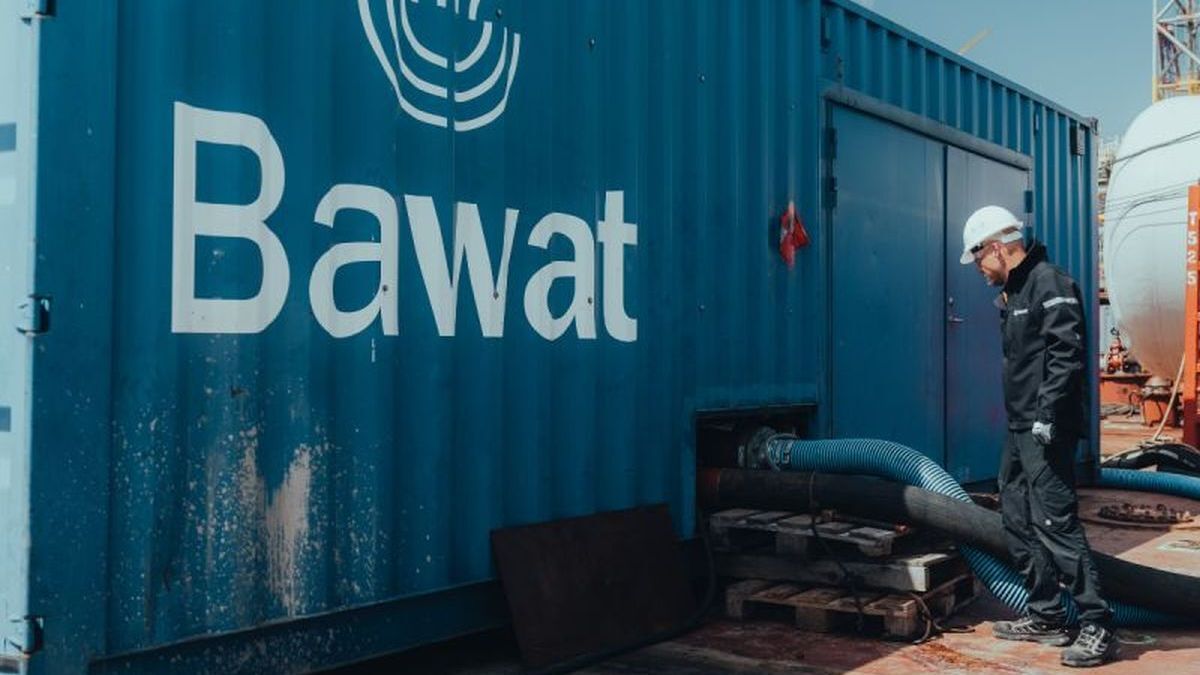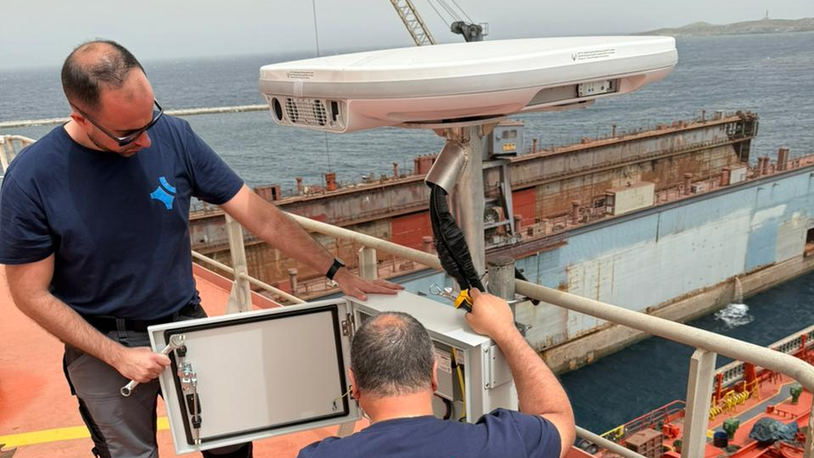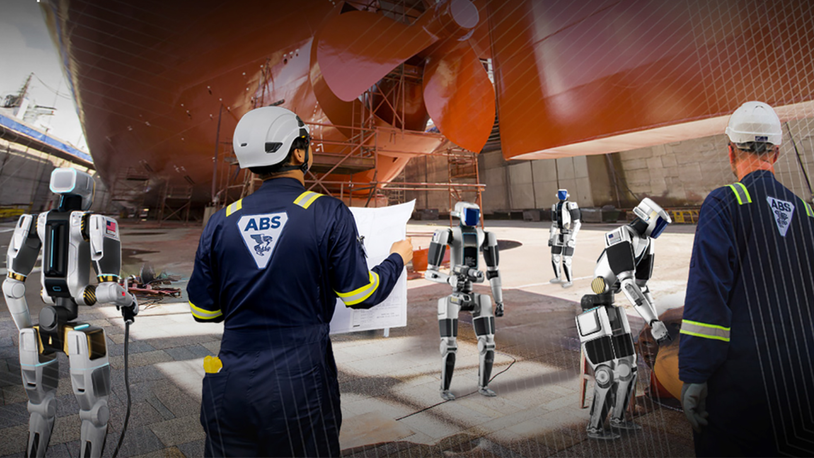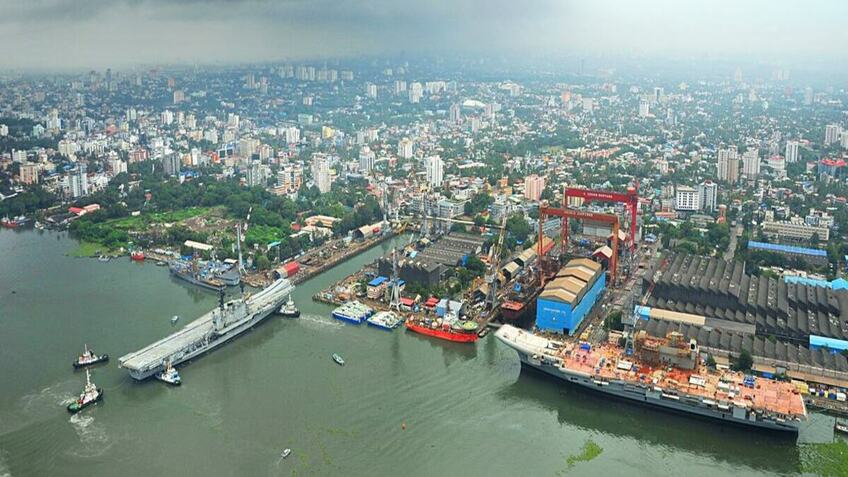Business Sectors
Events
Offshore Wind Webinar Week
Contents
Roundtable seeks to overcome hidden hurdles in OSV fleet modernisation
Persistent cybersecurity vulnerabilities, challenging integration complexities and data handling difficulties remain key issues slowing digital transformation across the offshore support vessel sector
Offshore support vessel operators are grappling with significant technological roadblocks that threaten to undermine digitalisation programmes, according to discussions at an Inmarsat-sponsored roundtable held on the morning of Riviera’s Asia OSJ Conference in Singapore on 9th September 2025. The breakfast forum, moderated by Riviera’s Executive Editor, Edwin Lampert, and conducted under the Chatham House Rule, revealed persistent challenges around cybersecurity implementation, infrastructure limitations and workforce adaptation that continue to impede sector-wide digital transformation efforts.
Building on discussions from the productive 2024 Singapore roundtable that explored vessel optimisation progress for digitalisation and decarbonisation, the latest gathering examined how strategies have evolved over the intervening year, what value has been delivered, and the emerging challenges around cyber resilience that have become increasingly prominent.
An initial poll revealed mixed progress on connectivity solutions, with some operators having implemented hybrid connectivity solutions since September 2024. However, a striking finding emerged when participants were asked about operational priorities: while cybersecurity was universally acknowledged as critical, no one considered cyber resilience their top operational priority despite its acknowledged importance.
Cybersecurity outpaces development of adequate measures
A critical industry consensus emerged that rapid digitalisation of OSV operations is outpacing the development of adequate cybersecurity measures, with the majority of participants rating this concern at four out of five on an agreement scale. Operators acknowledged experiencing cyber attacks, primarily through email systems, revealing a gap between the reality of threats and formal incident reporting.
A concerning lack of clarity in understanding cybersecurity standards for the maritime industry, particularly for vessels serving government clients with enhanced security requirements, compounds these challenges. Vessel positioning systems have been identified as primary attack vectors for cyber threats - a vulnerability significantly exacerbated by the rapid adoption of high-speed satellite internet services.
In geopolitically sensitive regions, particularly the Eastern Mediterranean and Black Sea, operators have felt compelled to implement up to five different reference systems on vessels due to routine GPS jamming and spoofing activities.
Regulatory compliance creates implementation bottleneck
The most pressing operational challenge centres on mandatory cybersecurity compliance with the International Association of Classification Societies’ Unified Requirements E26 and E27. The regulatory framework presents dual compliance triggers: requirements became mandatory for contracts signed after 1st July 2024.
Industry participants reported that the regulatory burden extends beyond initial compliance, requiring annual audits and five-year recertification cycles, creating ongoing operational and financial commitments that include continuous software updates, equipment replacement schedules, and documentation maintenance.
Managing cyber risk for AI-driven operational systems that learn and adapt behaviour patterns presents an emerging challenge that the industry is still developing protocols to address.
Technology lifecycles accelerate financial pressures
The integration of legacy systems with new digital technologies has created substantial financial burdens across the sector. The traditional 10-year lifespan for maritime IT equipment is being challenged, with operators noting that technology previously lasting 20 years now has a lifecycle of less than five years, presenting significant challenges in an environment of flattening revenues.
This acceleration has been compounded by the industry downturn between 2015 and 2022, during which limited technological investment created modernisation backlogs that companies are now struggling to address. Systems as recent as five years old are becoming obsolete, forcing operators to confront dramatically shortened technology lifecycles while lacking the capital reserves for comprehensive fleet-wide upgrades.
Infrastructure deficits constrain connectivity solutions
Regional discussions revealed fundamental infrastructure limitations that constrain digitalisation efforts. Companies implementing Computerised Maintenance Management Systems to achieve real-time shore-to-vessel data transfer find that inadequate network infrastructure prevents reliable connectivity, undermining operational benefits.
Operators report challenges retrieving real-time data from offshore due to connectivity issues, despite upgrading to multiple satellite constellation providers. One operator’s analysis revealed that system downtime due to general network issues was actually greater than satellite-related downtime, prompting a fundamental rethink of IT infrastructure approaches.
Hybrid network solutions address coverage gaps
The industry is increasingly moving towards hybrid connectivity solutions, leveraging software-defined wide area network (SD-WAN) technology to seamlessly bond multiple networks, including VSAT, LEO satellites, and cellular networks. This approach proves particularly crucial for vessels operating in coastal areas where single-provider coverage may be inconsistent.
Regional operators face additional complications in challenging maritime environments, where strong subsea currents combine with potential electronic jamming. Recent incidents included temporary loss of remotely operated vehicles and autonomous underwater vehicles, necessitating reliance on backup mechanisms for recovery.
Human factor creates multiple vulnerabilities
The human element represents significant cybersecurity and operational risks. Crew members bringing personal devices and USB storage equipment onboard create potential security breaches, persisting even where operators have implemented strict device connectivity policies and comprehensive firewall installations.
Lack of knowledge retention following the market downturn has created institutional gaps, while ongoing training and change management remain vital to overcome crew fears of job displacement through automation. Operators report that whilst systems can be straightforward to implement, training personnel to operate and manage them effectively presents considerable challenges.
High-speed internet connectivity has emerged as crucial for crew retention, with vessels equipped with advanced communication systems gaining significant recruitment advantages, particularly for older vessels that might otherwise struggle to attract qualified personnel.
An innovative ’sea rider’ programme was mentioned, where experienced captains and engineers sail in observational capacities to verify safety and operational practices, representing one approach to knowledge transfer and training verification.
Regional Variations Complicate Standardisation
Operational requirements vary significantly across regions, creating additional complexity for fleet operators. In Brazil, operators must comply with demanding client specifications requiring Portuguese-language interfaces and extensive video surveillance systems, necessitating vessel modifications that can take up to two months between contracts, significantly impacting operational efficiency.
These regional variations prevent economies of scale in technology implementation and force operators to maintain multiple parallel systems rather than standardised platforms.
Industry consolidation creates integration challenges
Industry consolidation has led to significant challenges in harmonising systems after fleet mergers, with acquired vessels often coming with contractual obligations to maintain specific communication and monitoring systems. This complicates efforts to standardise digital platforms across combined fleets, forcing operators to maintain parallel systems longer than anticipated.
The situation suggests that future merger strategies must place greater emphasis on digital infrastructure integration compatibility during planning phases, as these technical considerations increasingly impact operational efficiency and cost structures.
AI applications show promise despite implementation challenges
The potential for artificial intelligence across OSV operations emerged as a significant opportunity, with applications spanning predictive maintenance, safety monitoring, crew optimisation and remote operations. AI systems are expected to monitor equipment temperatures and vibrations, detecting potential issues early and enabling proactive maintenance scheduling.
Safety enhancements represent another crucial area, with AI systems capable of identifying danger zones on deck and monitoring personnel movements. Specific examples include AI-powered CCTV systems being used by operators in Thailand to monitor vessel operations in real-time, with shore-based teams analysing footage.
Crew management represents another transformative application, where AI systems might assist in optimising crew schedules and potentially reducing the need for administration. The potential for AI-controlled small remotely operated vehicles that could be operated from shore may reduce costly offshore mobilisations.
However, implementation timelines remain uncertain, with most operators still in early exploration stages. The industry is developing strategies for data protection whilst maintaining human oversight, with operators acknowledging that humans retain final responsibility in critical operations.
Cloud transition highlights data management challenges
Several operators reported complete transitions to cloud infrastructure as of January 2025. However, this shift has highlighted significant data management challenges, with technology providers processing over 2 billion data points daily.
While operators capture increasing amounts of data, analysis often occurs in isolated silos for individual systems, limiting overall value creation. The potential for AI to enable more holistic analysis approaches across multiple systems remains largely unrealised, though this represents a significant opportunity for operational intelligence enhancement.
Decarbonisation context informs current challenges
The 2025 discussions were built explicitly upon the 2024 Singapore roundtable’s focus on digitalisation and decarbonisation, providing crucial context for current implementation challenges. Electronic fuel monitoring systems continue as major focus areas, particularly in regions where fuel management practices create operational concerns.
However, implementation faces significant obstacles, including high costs, crew resistance and difficulties in verifying fuel savings claims. Several participants noted that improved planning by clients could have a more significant impact on reducing fuel consumption and emissions than many technical optimisations, highlighting the importance of collaborative approaches to efficiency improvements.
Limited proactive cybersecurity measures identified
Industry discussions revealed limited deployment of continuous monitoring solutions designed to detect lateral movements within vessel networks during extended offshore campaigns. Significant gaps in proactive cybersecurity measures were reported, particularly highlighting the need to strengthen regular penetration testing and related practices.
This represents a critical vulnerability as vessels become increasingly connected and autonomous-capable. To enhance cyber resilience, discussions pointed to embedding security from design to deployment phases rather than retrofitting measures, with industry collaboration vital for standard development and threat response.
Strategic investment priorities emerge
Strategic investments in resilient digital infrastructure and proactive cybersecurity frameworks were advocated, with participants emphasising that cybersecurity should be viewed as an enabler rather than an impediment. The analogy of cybersecurity functioning as a "brake system" that allows organisations to operate at higher speeds safely gained traction among participants.
If budget were not a constraint, operators identified prioritising infrastructure development as paramount to enabling successful digital transformation. Key lessons learned from 2024 included the importance of upgrading crew knowledge and providing education to ensure personnel understand and adapt to new digital tools, addressing fears related to job security.
Remote operations on near-term horizon
The prospect of remote vessel control becoming operational in the near term presents both opportunities and risks, with operators acknowledging the need to balance operational innovation with security imperatives. As vessels become increasingly autonomous-capable, the industry faces mounting pressure to develop robust safeguards against cyber attacks while recognising operational benefits such capabilities could deliver.
Crew
Key lessons from the 2024 roundtable highlighted smarter maintenance, safer operations, and stronger crew retention through AI, training and always‑on connectivity.
Riviera’s Offshore Support Journal Conference, Americas will be held in Rio de Janeiro, 7-8 October 2025. Click here to register your interest in this industry-leading event.
Related to this Story
Events
Offshore Wind Webinar Week
Maritime Decarbonisation, Europe: Conference, Awards & Exhibition 2025
Offshore Support Journal Conference, Americas 2025
© 2024 Riviera Maritime Media Ltd.


